Uber drivers take industrial action at Adelaide Airport in fares dispute
Uber fares from Adelaide Airport almost doubled on Monday morning as drivers embarked on the latest strike against the company.
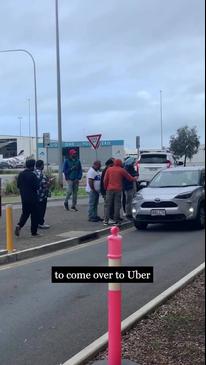
SA News
Don't miss out on the headlines from SA News. Followed categories will be added to My News.
Uber drivers are urging other rideshare operators to cancel passenger fares at Adelaide Airport in their latest round of industrial action.
A group of drivers is encouraging others – with booked fares and passengers waiting – to cancel the trips and drive on by.
The strike action, which started at 7am, sent fares surging at its peak just after 8am, with a driver blockade to continue until late Monday night.
The company wants to reduce fare rates for riders by 3 per cent, but drivers say Uber has not altered the commission – about 27 per cent – at the same time.
The strike action means Adelaide riders were being hit with a surcharge due to demand, sending fares skyrocketing.
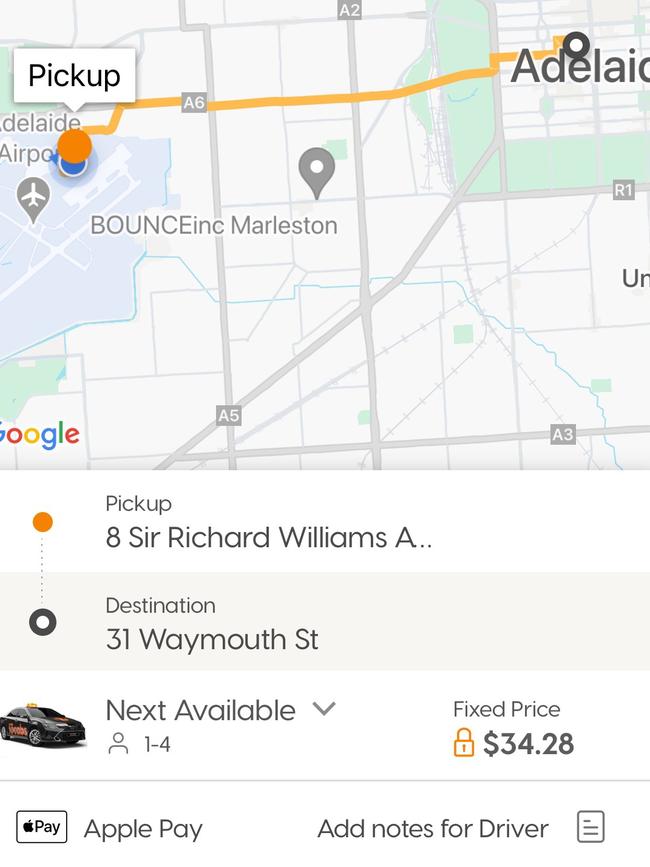
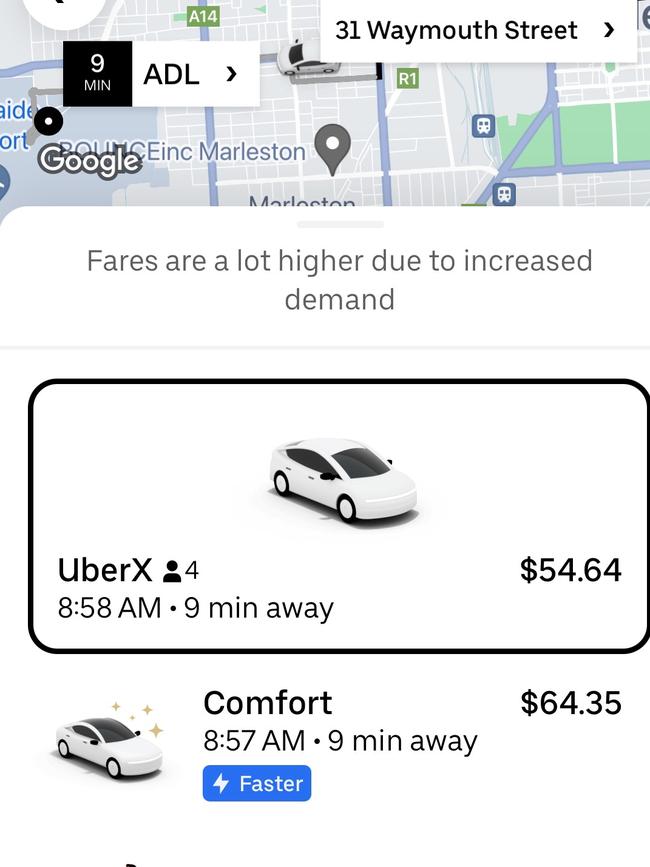
A trip from Adelaide Airport to the city was about $55, or at least $20 higher than usual.
A taxi fare priced through the 13 Cabs app to the same destination was $35.
Uber driver Love Patel told The Advertiser it was unreasonable for the company to reduce fares for riders without reducing the commission it takes.
He said while it may increase the demand for drivers, the lower fares would reduce the amount drivers could make overall.
Passenger Tanya Hanousch flew in from Melbourne and booked an Uber, unaware of the strike action.
She said the surge was unexpected and would have opted for a taxi had she known, but agreed with the demands from drivers for parity.
Her fare to Adelaide city was about $55.
FIFO worker John Dalby uses Ubers to and from the airport twice a week, paying about $60 each trip.
He was among the stranded passengers at Adelaide Airport on Monday morning.
His driver didn’t cancel the fare, instead the app showed he was still arriving.
But after waiting more than 15 minutes, Mr Dalby – who flew in from Roxby Downs – gave up and went to find a taxi.
“They don’t think about the knock-on effect for other people,” he said.
“They could be going to see loved ones, they could be going to work, there could be any factor to it.
“And a 3 per cent reduction in their fares – if you want us to go back to taking taxis that’s fine – you’re all out of jobs.
“It’s up to you guys what you want to do with your work but it’s not really fair on other people booking an Uber to get home.”
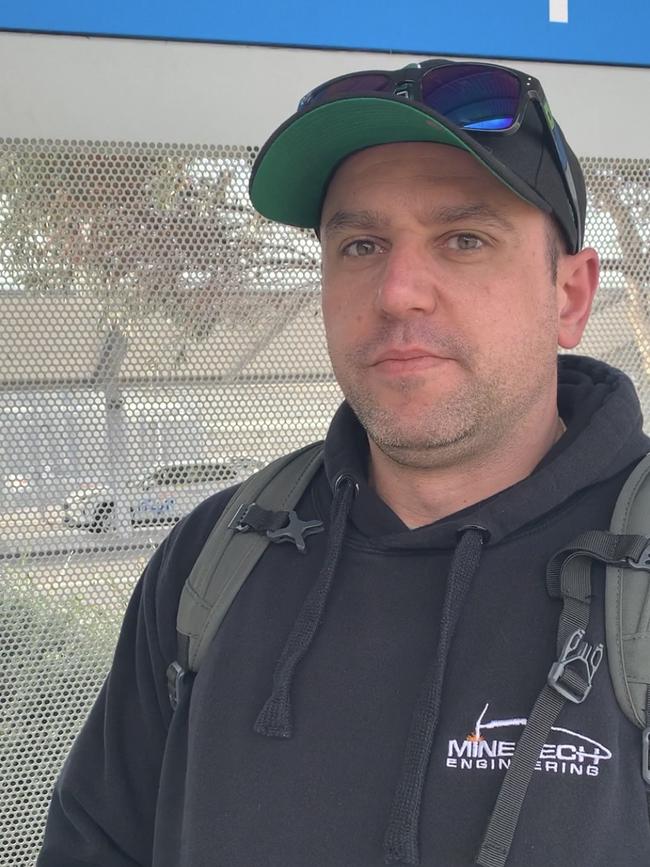
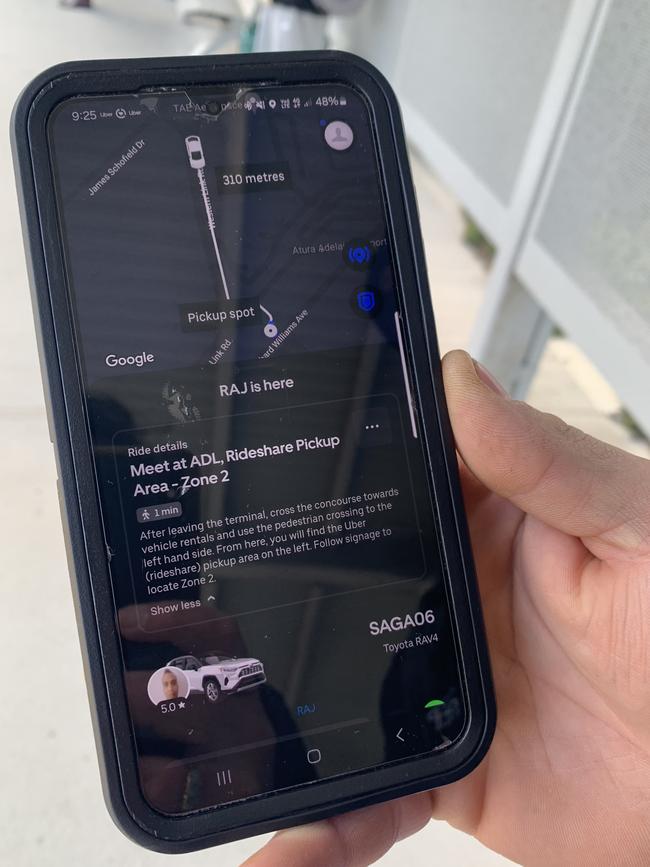
Driver Kevin Sharman has been with Uber for seven years, and in the transport industry for 18 years.
Insurance for his personal vehicle to be used for Uber has increased from about $800 to $3000 a year, and annual registration up by about $400.
“And of course, as we all know, fuel has also gone up,” he said.
“The main factor is the cost of cars.”
Mr Sharman said prices for a suitable second-hand car to meet Uber requirements had skyrocketed to about $60,000, up from about $30,000 two years ago.
He now leases a vehicle on a subscription basis at about $300 a week with unlimited kilometres, which reduces the overheads he must pay from every fare and also the wear and tear on his own vehicle.
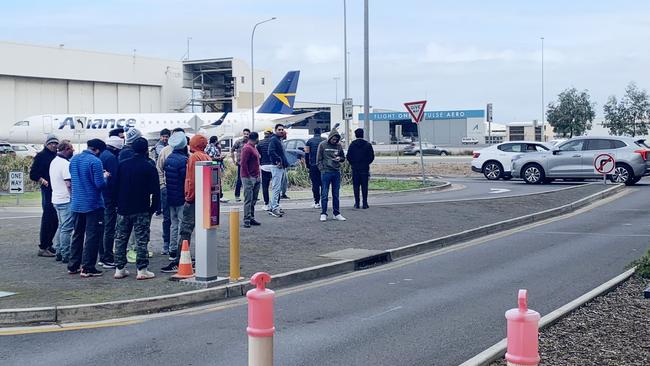
It means he can clear about $500 a week into his pocket working part time hours and is semi-retired.
“All I have to do is put the fuel in; so I know exactly what I’ve made at the end of the week rather than gambling on car repairs,” he said.
One of the few Uber drivers to ignore the throng of striking operators, Mr Sharman said the blockade – which was encouraging drivers to cancel booked trips on the app – would damage the rideshare’s reputation.
“I agree we have an issue with the money, what we’re earning but doing this here and blockading is crazy,” he said.
“Our business people, they have been so hard to get them over to Uber and we got them over here but now we’re sending them back over to the cabs.
“To me it defeats the purpose – it’s not what we need.”
Mr Sharman was a taxi driver when the rideshare company entered the Adelaide market and said he railed against its operation, but has since joined it
But the increasing overheads without any adjustment to the commission the company paid was making it harder – but any negotiations should be between the drivers and the company.
“I think I saw some stats where there’s only 3 per cent (of Uber drivers) working full-time hours, and the other 97 per cent are all doing what I do – they’re casuals topping up other incomes,” he said.
He said he believed more drivers were leasing their vehicles similar to his arrangement.
An Uber spokeswoman said the company had updated its approach to “how we calculate standard fares in select Australian cities”.
Those cities include Sydney, Melbourne, Brisbane, Perth, Adelaide, Canberra, Newcastle, Geelong, Hobart, Darwin, Toowoomba, Wollongong and Wagga Wagga
“As of 21 August, our new fare structure in these cities accounts for multiple factors to ensure we can match riders with the best ride at the best price” the spokeswoman said.
“Fares are calculated and will vary based on a combination of where a trip starts, the day of the week and the time of day.
“As always, riders will be able to see the full cost of the fare upfront before requesting a trip.
“They will also receive a full breakdown of these new fare components in their receipt by email and in-app.”



